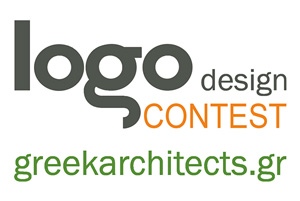ARCHITECTURAL PROJECTS
HOMMAGES

16 March, 2009
Α.Μ. Kotsiopoulos & Partners Architects
Anastassios M. Kotsiopoulos is Professor at the School of Architecture, Aristotle University of Thessaloniki, and a Corresponding Member of the Academy of Athens in the Chair of “Architectural Design”. 
Following:
-Presentation of A.M. Kotsiopoulos and partners & Interview
-Architectural work (86 pictures)
Introduction
Master Plans
Complex Buildings
1.Extension of the Faculty of Sciences, Aristotle University of Thessaloniki
2.New building for the Main Library, Aristotle University of Thessaloniki
3.Building complex for the Biomedical Research Foundation of the Academy of Athens
4.Erasinio Oncology and Cancer Centre in Coropi, Athens (Under construction)
5.The Crassas Multi-Cultural Centre in Thessaloniki (Under construction)
Buildings with Characteristic Skins
1.Five metal cubes
2.New headquarters for the “Alumil”
3.House 2 in Thessaloniki.Old Town
4. Cultural and Recreation Centre
5.Shopping mall (Green building) in Alexandroupoli
-Video (only in Greek version)
Since 1997 he runs the architectural practice 'A.M. Kotsiopoulos and partners' along with the architects Emmy Zoumboulidou and Alina Panou.

A.M.Kotsiopoulos E.Zoumboulidou A.Panou
Since the early 90's A. Kotsiopoulos and the practice is systematically concerned with sustainable and energy-saving architecture, either through designing underground buildings (Aristotle University Main Library, Aristotle University Faculty of Humanities etc), or through a series of projects focusing on the building's "skin" as a climatic inverter. (more information about A.M. Kotsiopoulos and partners>>)
Interview
by Vassilis Mistriotis
V. Mistriotis
Professor Kotsiopoulos, for forty years now, you are practicing and teaching architecture in a very successful way. Recently you have been elected Corresponding Member of the Academy of Athens in the Chair of "Architectural Design", one of the greatest distinctions in our country. Having in mind your long and valuable experience, we would like you to share your views with us on the architectural aspect of modern cities, which have lost their ability to create genuine spaces for their citizens and have been eliminated to the production of an attractive two-dimensional commercial image, ignoring basic functions of urbanity.
A. Kotsiopoulos
Firstly, I would like to thank you for this conversation and for your kind words. Your question deals with central issues of contemporary architecture and the way we often perceive and copy architecture. In contemporary Greece, avant-guard architecture and the quality of our daily urban environment, continue to be incompatible. They are not connected in the way that they should be, but via a contradictory discourse and through distortions which do not occur in more mature - culturally and socially - countries.
The results of this situation are many: for instance, the small impact that architects and architecture exercise to the society as a whole, the lack of connection between architecture and the real world, the refuge to fashion and life-style, the often absurd discussion about the protection of the environment and the unreasonable blame on architecture, the fear toward anything that differs from the banal, and many others.
Therefore, what you call "the basic functions of urban concept" continues to be a problem, which we are incapable to define.
I don't want to be pessimistic; neither I represent the attitude that things were better in the past. Simply, I believe that something has to be done. We have, as architects, to keep some distance from the discussion about style, which, during the last few years, has led us to a continuous struggle in order to survive in the highly competitive field of avant-guard architecture.
V. Mistriotis
We would like you to share with us your very first thoughts when you are about to begin a new project facing a blank paper. Has your academic status ever repressed your architectural experimentations? Have you ever felt that you are trapped in the theories you teach?
A.Kotsiopoulos
I can definitely say that the academic status is a close, loyal and excellent companion of active architecture. Architecture does not exist without theory, but also neither theory nor the teaching of architecture can exist without its juxtaposition with architectural practice. The discussion with the students is always a reason for the professors' renewal, and the students also passionately seek professors with continuous and up-to-date experience. I believe that those, who support that the academic teacher should not practice architecture, do not understand the challenges of our times.
In order to answer the second part of your question, I would like to stress that the beginning of a project is equally significant as the next step as well as the discussion that follows. Architecture is a collective process, but by no means the creation of a designer or of a designing team should be diminished to a product of a "committee". Undoubtedly, there is a great dynamic in the initial idea of the project. In which way and by which intellectual mechanisms this idea is being gradually structured, is one of the most difficult questions of the Theory of Art. Even today, I am not certain that we have reached coherent answers to questions of this kind, despite an obvious demystification process, which has taken place over the last twenty years.
V. Mistriotis
It seems that the issue of sustainability of buildings and of their shell, as a climatic converter, are matters that concern you. Could you analyze these matters further, in the context of the general principles of your work?
A. Kotsiopoulos
Architectural forms have been always affected by systems of values. A recently influential system - our sensitivity over the environment - has led to our growing interest in the physical behavior of buildings and the behavior of their external "skins" as climatic converters. This is well known and is not the main issue. What is important is to "translate" the demand of sustainability to the "language" of architecture, that is, to aesthetical terms. I would like to remind you of the disappointing scene of 70's with the so called sustainable buildings of the first generation. Today, not only the way architects think has changed but also the industry has turned to a completely different direction: rather than producing a quasi-ecological skin of an unsustainable building, environmental care is now upgraded to an essential component not only of the designing process, but also of the basic construction materials.
For many years, my partners and I are systematically interested in these subjects.
We have been experimenting on complex building skins made of either metal grids or wooden shutters, following a pattern similar to the Arabic mashrabiya. Some of our buildings with these types of skin (New Headquarters for the "Alumil" aluminum company in Kilkis, Five Metal Cubes of Aristotle University, Residence in Thessaloniki Ano Poli, Cultural and Recreation Centre at the site of the School of Aristotle in Naoussa etc.) have become known and published in Greek and international magazines including - twice - the "Phaidon Atlas of World Architecture". We prefer, however, to promote the overall architectural identity of our buildings in which all their sustainable elements are incorporated, rather than highlighting only their energy saving properties. This identity is, in any case, more important than any particular feature.
V. Mistriotis
You have been professor of architecture for years. It is obvious, that most of Greek Universities are incapable of providing their students with the means to exercise the profession of an architect. In addition, most of the Technological Educational Institutes are not functioning correctly. Where do you locate the problem? Is it political or institutional? Is there a way of improving things? Are our politicians really interested in solving it?
A. Kotsiopoulos
As far as the universities are concerned, I would like to stress that beyond any doubt, in our days the best of Greece's scientific staff are either already or trying to become members of staff of public universities. I do not know for how long this situation will last and whether it will "survive" the new institutional status, which seems inevitable.
The answer to why a high quality staff can not succeed in organizing a high quality university must be found in other reasons: starting from the minimal budget for new constructions and maintenance to the inability of institutions, administrators and staff to establish and preserve an academic "climate", strong enough to act as a barrier of reason against violent minorities.
I have to stress however, that in spite of all these difficulties, a competent student of architecture can graduate with a high level of knowledge and excel afterwards in his post-graduate studies either in Greece or abroad. He will not be fully qualified of course to practice the profession of architecture at a high level, which requires an important experience beyond graduate and post-graduate studies. In any case, I think that instead of blaming the university for everything, we should re-examine the procedures through which Greek architects become members of professional organizations and engineers of any kind obtain the license of exercising architecture.
Getting to the second part of your question, though I am not fully informed of what is happening in the Technological Educational Institutes, I know that some of their Engineering Faculties are really good. How Technological Educational Institutes and Universities are going to collaborate in the future, in a unified system of Higher Education, is a question the answer to which requires imagination. In any case, someone has to take the initiative and solve this problem, without taking into account the so-called "political cost". In my opinion, our politicians have a rather false idea of what today's society truly appreciates and what not. They would easily discover that solving problems of that kind would be politically more profitable - even in the strict sense of the term - than presumed.
V. Mistriotis
Recently you participated in the events "Architecture Week 2008", co-organized by the "greekarchitects.gr" e-magazine and the Aristotle University of Thessaloniki. Please share with us your thoughts about this initiative.
A. Kotsiopoulos
Your initiative to create an architectural e-magazine is very important, although most of us cannot yet fully visualize its structure and potential. The "architectural week" followed the e-competition that you organized for the buildings that are situated near the New Museum of Acropolis. I have found the exhibition and the discussion between the critics very interesting. It seems that all these "virtual" activities need sometimes their "material" expression. I am sure that soon you will acquire an important experience in managing these kinds of activities and you will help significantly in the circulation of new architectural ideas in Greece and abroad.
V. Mistriotis
Most of Greek professional associations of architects are in a state of "depression" They deal only with subjects concerned with strictly professional matters and depend on the political views of the parties, by which their leaders are affected. Which is your opinion on this matter? Can these associations actually play an essential role or will they remain representatives of political institutions?
A. Kotsiopoulos
I think that, at least for the Architects' Associations that I know, there have been made significant attempts from time to time to circulate new architectural ideas, and to cooperate with universities and with other institutions that promote architecture, as the always active Hellenic Institute of Architecture. I want to remind you that at least two of these Associations (Association of Greek Architects, Association of Architects of Thessaloniki) publish two important and well-known scientific magazines. I understand, of course, that, when political conflicts become tough, things became difficult to the point of "suppression" you have just mentioned. I don't ignore, also, the fact that these significant attempts to circulate new architectural ideas were made either from isolated individuals or from groups of people that were interested in other goals. These things happen. Architecture is a complex phenomenon and our consideration of it is inevitably made from many different and even contradictory points of view.
V. Mistriotis
Is there anything else that presently concerns you about architecture?
A. Kotsiopoulos
I would like to emphasize that architecture is an endless and interactive experience and I would like to thank first of all my teachers, starting of course from my professor John D. Triantafillides. On the other hand, I would like to emphasize that architecture is a collective production and, therefore, I would like to thank my previous colleagues, as well as my partners, Emmy Zoumboulidou, Alina Panou, Betty Halkiopoulou and all the others.
We are already experiencing a period of a serious worldwide economic recession with unknown future. This has already affected architecture, leading, for the time being, to a period of restrictive funds, hesitation, insecurity, and restricted ambitions. The, until recently, rapidly developing architecture of high ambitions, including the system which has supported it, suddenly seem out of place.
Usually, from periods of crisis, new ideas and methods arise. The crisis - or at least in Greece the threat of the crisis - already affects us, and I think it is time to start searching for new paths. I don't quite know what this means, but I am sure that we will soon discuss it and find out.
V. Mistriotis
Professor Kotsiopoulos thank you very much.
A. Kotsiopoulos
Thank you and I wish you success in your effort.
Related articles:
- Five metal cubes ( 30 August, 2010 )
- New headquarters for the “Alumil” ( 22 January, 2009 )
- House 2 in Thessaloniki Old Town ( 22 May, 2009 )
- Cultural and Recreation Centre ( 05 December, 2016 )
- Green building ( 22 May, 2009 )
- Extension of the Faculty of Sciences, Aristotle University of Thessaloniki ( 27 July, 2010 )
- New building for the Main Library, Aristotle University of Thessaloniki ( 20 April, 2010 )
- Building complex for the Biomedical Research Foundation of the Academy of Athens ( 15 May, 2010 )
- Erasinio Oncology and Cancer Centre in Coropi, Athens ( 22 May, 2009 )
- The Crassas Multi-Cultural Centre in Thessaloniki ( 22 May, 2009 )
- Introduction ( 20 April, 2009 )
- Master Plans ( 30 June, 2010 )










